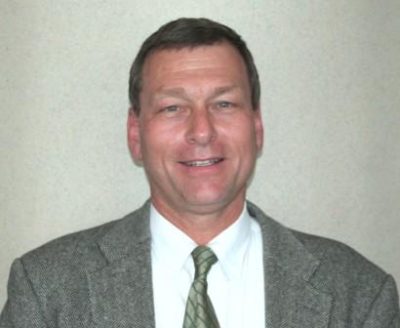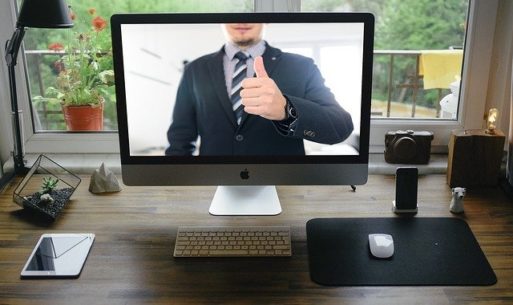(4-27-22) I’ve often written about the power of a single individual to change our society and have quoted Margaret Meade who famously said: “Never doubt that a small group of thoughtful committed individuals can change the world. In fact, it’s the only thing that ever has.” Here is an inspiring story that confirms her quote.
When COVID hit, Karl Polzer found it difficult to keep in touch with a family member (name being withheld for privacy) who had been sent to Western State Hospital in Staunton, Virginia. The young adult had been arrested on misdemeanor charges in February 2020 during a major psychotic break and sent to the state hospital for competency restoration.
Within weeks, Karl and Jane Polzer were told that in-person hospital visits were being suspended because of COVID. Maintaining contact with a patient through telephone calls became problematic. When the Polzers telephoned the hospital, they had to depend on a patient within earshot of the ward’s phone answering it and locating the person being called.
In May 2020, the couple became concerned when they were told their family member was unable to come to the phone. No one would say why. They began calling the hospital’s staff and eventually arranged a call. They were stunned. Their loved one could barely speak and had become partially paralyzed. Polzer learned it was because of an adverse drug reaction.
“During this time, we had no way to communicate with our family member, Polzer later told members of the Virginia House of Delegates during a Health, Welfare and Institutions Committee hearing. “We could not visit in person. We could not talk to him. And we could not see him. We felt powerless to help him.”
A former award-winning investigative journalist, who holds a master’s degree in public administration from the Kennedy School of Government at Harvard University, Polzer asked if the hospital would arrange a video conference call since Zoom-type meetings were becoming commonplace during the pandemic.
Polzer reached out to Dr. Mary Clare Smith, the hospital director, who agreed it that Zoom-type calls were a good idea. With her support, Polzer was able to get a pilot program launched at the hospital. Because the IT department at the hospital had other priorities, it took six months but just before the Christmas holidays in 2020, ten families were able to talk to their family members at the hospital through video calls.
By that time, the Polzer’s family member had been discharged so their family never was able to use the video chat. But Polzer decided to push forward in case there might be a re-hospitalization and because he and Jane felt other families could benefit from the calls. (Jane co-leads a National Alliance on Mental Illness family support group.)
Polzer began contacting the state’s other nine mental facilities and state officials in Richmond to ask that they also begin offering patients Zoom-style communications during the COVID lockdown. Unfortunately, in late 2021 state hospitals were hit with severe staff shortages. While most agreed Zoom-like calls were a good idea, there was back-siding at one hospital and others didn’t prioritize Polzer’s campaign.
Undeterred, the Polzers sought help from the National Alliance on Mental Illness in Virginia and Virginia Delegate Rodney Willett, (D-Henrico), who has made health issues a priority during his legislative term. Del. Willett loved the idea, so much so, he introduced House Bill 388. It called for state mental health facilities to launch video visits for patients and continue offering them after the pandemic ends.
“Working with NAMI Virginia’s CEO and NAMI lobbyists, and Del. Willett’s highly skilled staff was a great experience,” Polzer wrote in an email. One of his contributions was to not include nursing homes and assisted living facilities in House Bill 388 because Polzer had previously worked for that industry and he knew its lobbyists had killed a similar bill in 2021. He assumed they’d have enough political clout to stop his bill even though such visits would help families and their loved ones..
With testimony, which he emailed to 140 legislators, and lobbying by Polzer and the team, the general assembly approved Willett’s bill and on April 11, Governor Youngkin signed HB 388, which requires the directors of each of the state’s 10 mental health hospitals to have a process in place to facilitate virtual visitation by July 1.
“People living in Virginia’s mental health hospitals and other institutions are often forgotten in the process of adopting communications technology,” Polzer told Monique Calello, a reporter with the Staunton News Leader. “They should be among the first included, not the last.”
This story reveals the power of one and the work of many to accomplish meaningful change! Bravo.
(In February, Western State began allowing limited in person visitation. Polzer is the founder of the nonprofit Center on Capital & Social Equity which helps underserved populations.)
Can your state follow Polzer’s example? Here is an excerpt from his testimony, in which, he explains the importance of making Zoom-style calls accessible for patients.
Over the past year, video visitation provided critically needed connectivity between hospital patients and their families and friends while in-person visits were suspended. Among its benefits are:
◼ Reducing social isolation. After two years of living through a pandemic, everyone has suffered to some degree from loss of social contact including people in the outside community. It’s important to understand that people with psychological and cognitive impairments tend to be much more 3 isolated to begin with. Their inbuilt isolation is compounded by living in institutional settings.
◼ Helping people with limited resources to stay in touch with family members and friends in the hospital. Zoom-type technology increases the opportunity for people with low-incomes, or lacking the money or means of transportation, to visit and to provide emotional support for patients. Patients in Virginia psychiatric hospitals often end up far from home. For example, forensic patients from Northern Virginia are generally sent to Western State, which is 150 miles from the Falls Church area. Average driving time is two hours and 20 minutes each way.
◼ Allowing parents to see their young children. Hospital rules and restrictions can make it difficult for children to visit their parents in person. Video visitation allowed a mother living in the hospital to see her child for the first time!
◼ Providing all families with a way to supplement hospital visitation by telephone or in-person.
◼ Helping patients prepare for discharge and re-integration into the community.
◼ Increasing hospital accountability through more frequent and complete contact between families and patients. The cost of setting up video visitation is minimal. Western State Hospital purchased Kindles for this purpose within its existing budget. It’s also possible for video visitation to create savings by reducing the burden on staff to administer and supervise in-person visits. The main issue has been overcoming institutional inertia and training staff to help patients schedule and access visits. Hospital social workers and rehabilitation staff who prepare patients for re-entry into the community understand their need to maintain connectivity with family and friends and have been particularly supportive of tele-visiting. Reducing social isolation both increases the likelihood that patients can successfully return to life in the community and decreases the likelihood of relapsing into crises that involve costly hospitalizations.
More about Karl Polzer.
After working for more than three decades in policy and advocacy jobs in Washington, D.C., Polzer began a non-profit called the Center on Capital & Social Equity in 2014. He writes that the project has two goals: explore the political economics of growing inequality and advocate for the bottom 50%. “Our family members’ struggles to get and hold jobs has provided a window into the economic constraints that a large part of our population face. Technically we are not a non-profit – so far I’ve not bothered to organize in a legal sense. Friends and colleagues help with suggestions for posts and reviewing articles.” The Polzers have received no payment for their work. “One of our goals is to establish a universal retirement savings system – everyone included. Right now the bottom 50% have virtually zero in retirement savings.”

Karl Polzer




